The Proverbs of Hell 29/36: Secondo
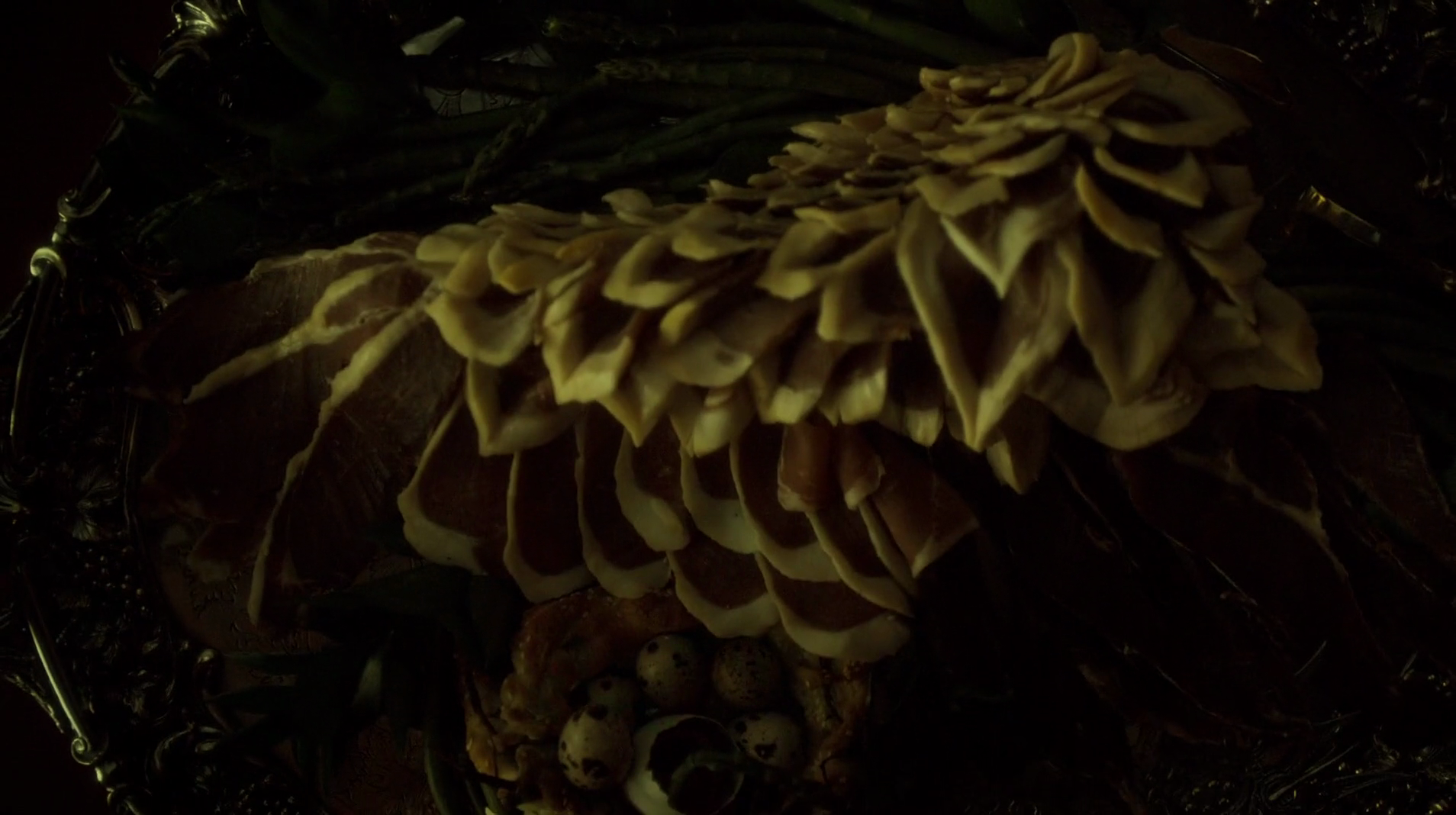 SECONDO: The heavier of the two main courses, typically meat-based. This is in no way a heavier or more substantive episode than “Primavera,” so do what you want with that.
SECONDO: The heavier of the two main courses, typically meat-based. This is in no way a heavier or more substantive episode than “Primavera,” so do what you want with that.
BEDELIA DU MAURIER: Forgiveness is too great and difficult for one person. It requires two: betrayer and betrayed. Which one are you?
HANNIBAL: I’m vague on those details.
BEDELIA DU MAURIER: Betrayal and forgiveness are best seen as something more akin to falling in love.
HANNIBAL: You cannot control with respect to whom you fall in love.
Bedelia is recapitulating Bella with her account of forgiveness. Hannibal does not notice this, which speaks to his overall state: Hannibal is sullen, withdrawn, and even pouty here – his “I’m vague on those details” feels like an admission of weakness unlike anything we’ve really seen from him before. It is not quite an admission of regret for “Mizumono,” but there is a clear sense that Hannibal feels as though his response was in some way disproportionate or rash.
BEDELIA DU MAURIER: You’re going to get caught. It’s already been set into motion.
Bedelia glimpses the Aristotlean unities underpinning Hannibal’s reality.
Every season of Hannibal has an early episode that works according to a narrative logic unlike the rest of the series; “Œuf” in Season One, and “Hassun” in Season Two. “Secondo” joins them, putting Hannibal in contact with the classically and unreconstructed gothic. Unlike “generic cop show” and “legal thriller,” this is actually a genre collision with deep roots in Hannibal’s DNA, as opposed to things with deep roots in the NBC primetime schedule.
I groused last week that Will’s “conjuring ghosts” was a thread that was insufficiently pulled on. This, however, where he conjures an imaginary Hannibal to serve as his interlocutor, is clearly a variation on the tendency. But Hannibal is the object of Will’s pursuit – in a normal version of “Will does the crime scene thing,” Hannibal would be the role he steps into. This thus lies somewhere between conjuring up Abigail to accompany him and his usual practice, a reflection of and commentary on the peculiarity of Will and Hannibal’s relationship.
WILL GRAHAM: The spaces in your mind devoted to your earliest years… are they different than the other rooms?
WILL GRAHAM: Are they different than this room?
HANNIBAL: This room holds sound and motion, great snakes wrestling and heaving in the dark. Other rooms are static scenes, fragmentary…
A rare quote from Hannibal Rising, which is entirely appropriate given that this episode is basically the show’s one big concession towards adapting that book. That doing so should produce the seasonly “out of genre” episode speaks volumes about this late contribution to the ouvre, apparently written purely so that Dino De Laurentiis wouldn’t have his own Hannibal Lecter origin piece written. (Fuller himself has suggested he views it as having a slightly more lowly canonical status, noting that he knows the other three Lecter books far better than Hannibal Rising.)
Even to a knowledgeable reader, the discovery of a young Asian woman with a rifle on the Lecter estate is not quite what one would expect, doubly so because it’s not Lady Murasaki, who goes entirely unmentioned in this episode (although she was alluded to in “Kaiseki”).…

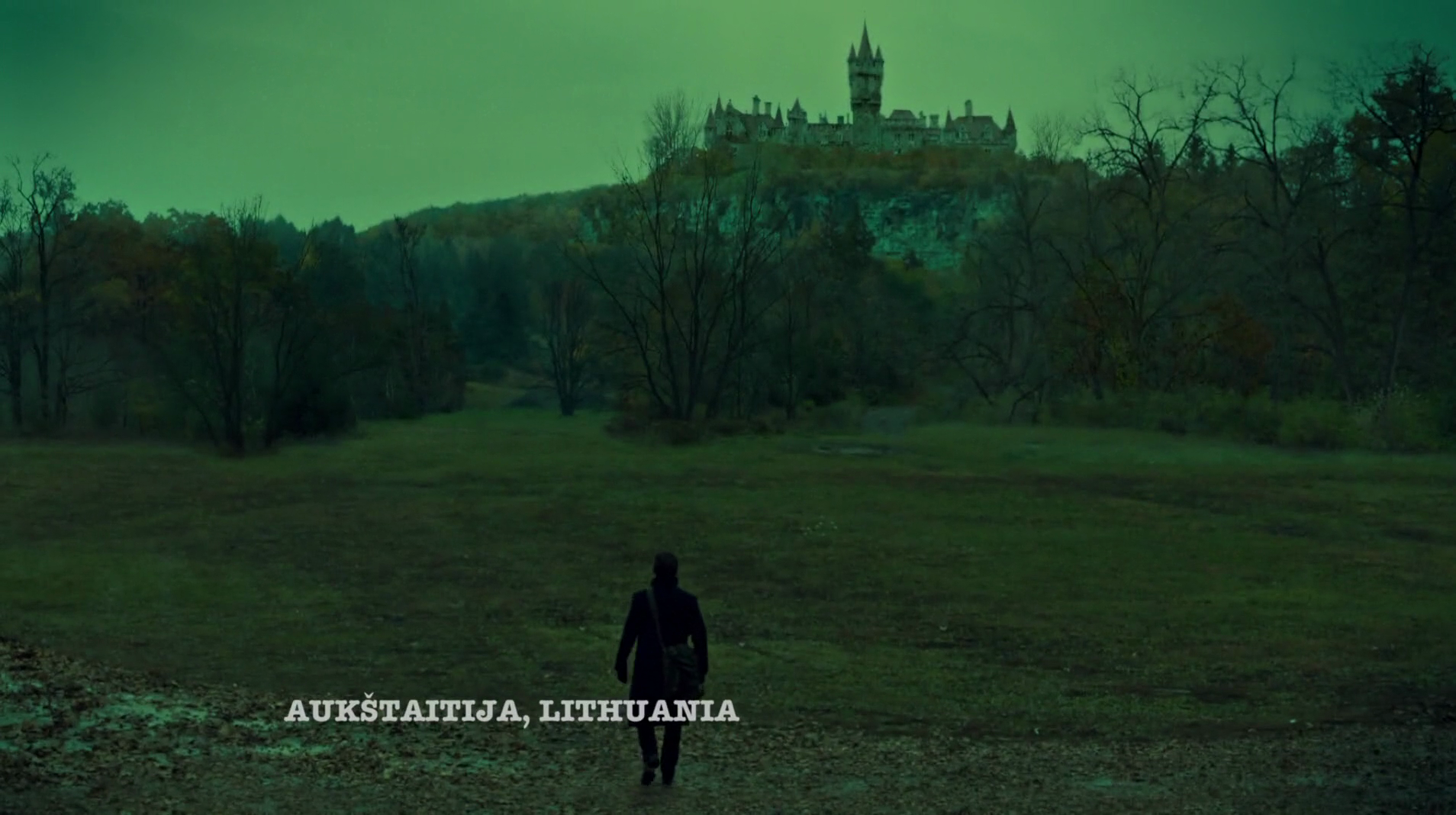
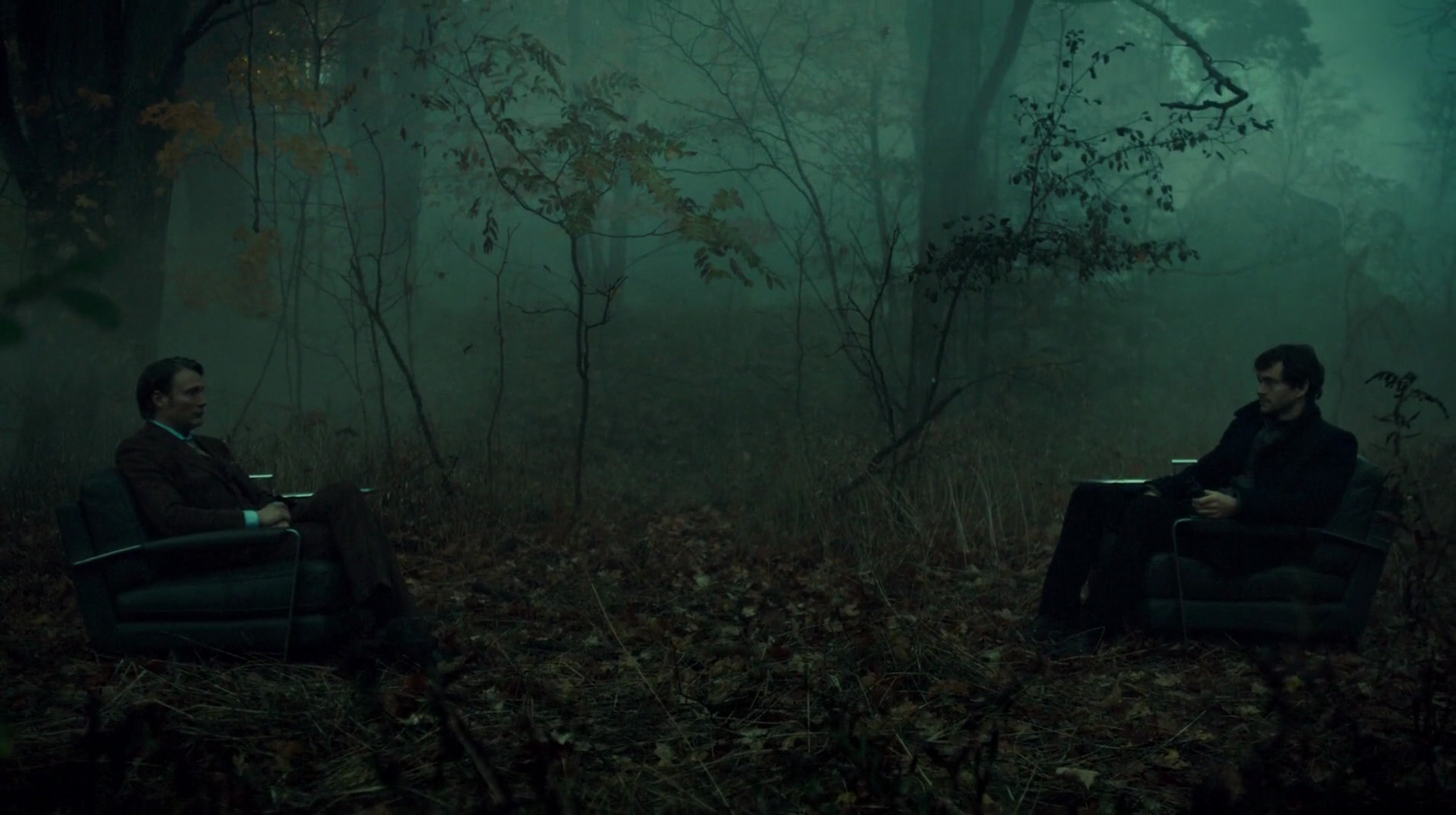
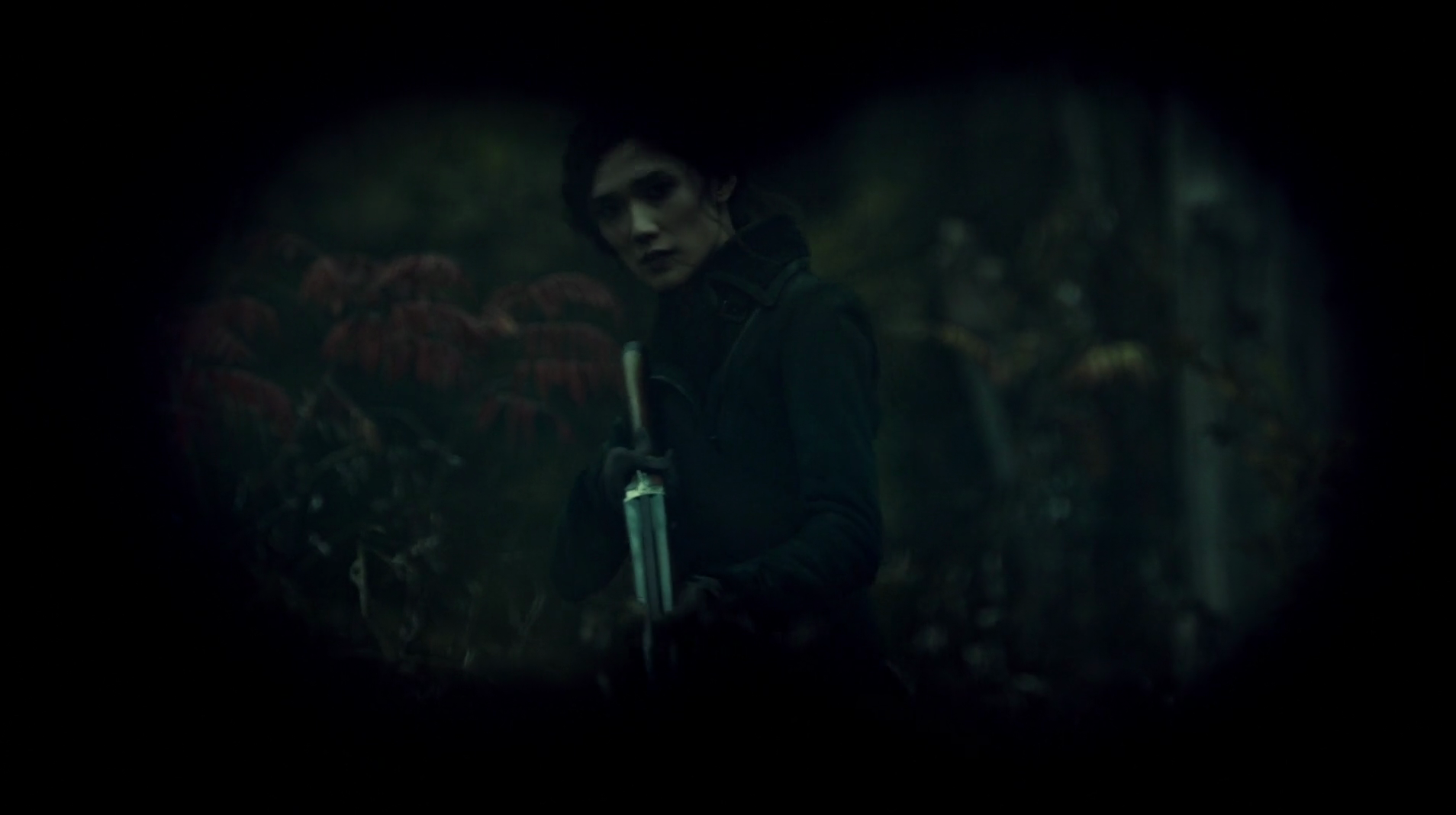
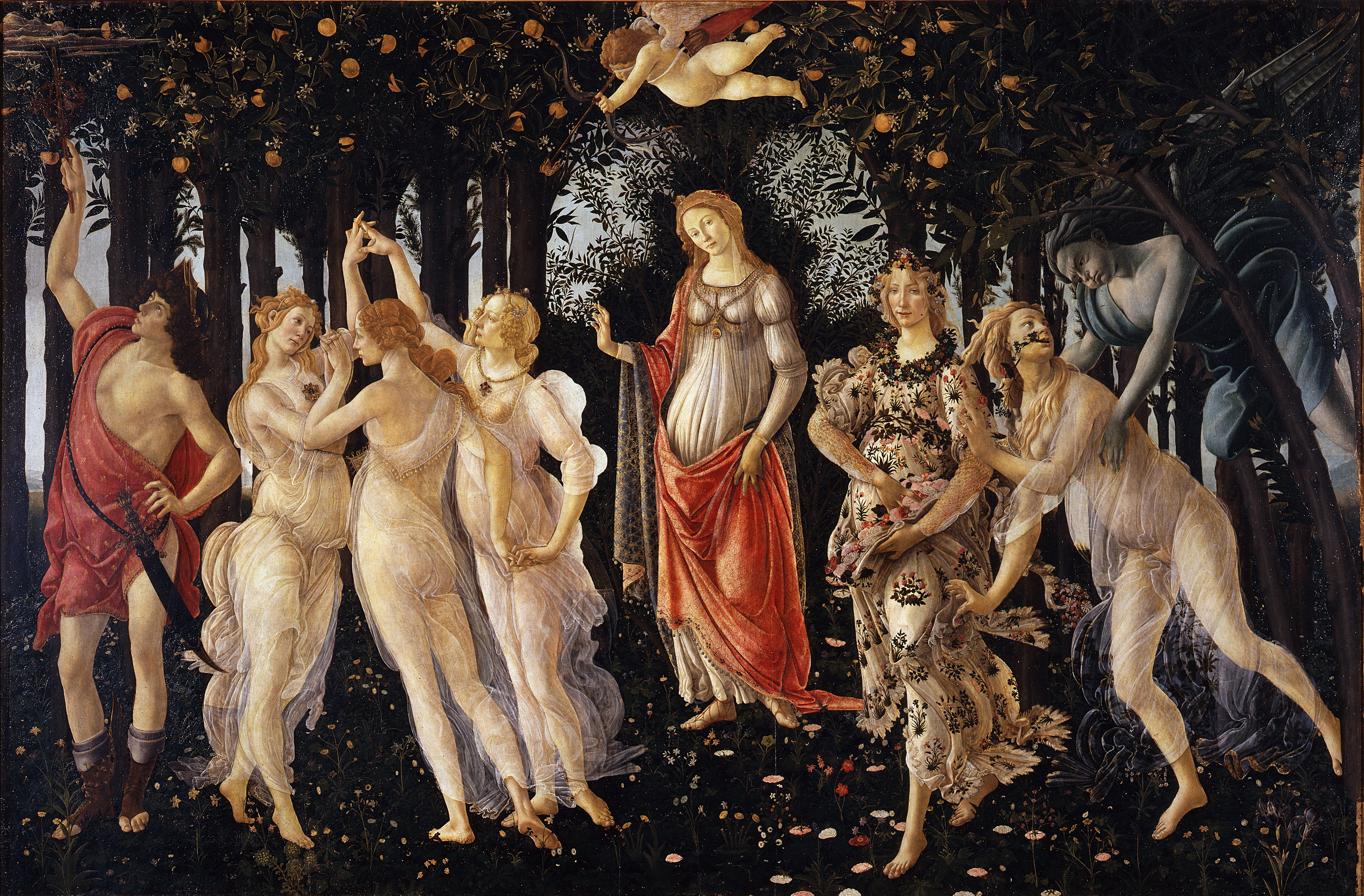 PRIMAVERA: Hoo boy. OK, so the course of an Italian menu between antipasto and secondo is supposed to be “primo.” This is often a pasta course, but can also be a risotto, a soup, or some similar hot course. One such dish certainly could be pasta primavera, which is a pasta and vegetable dish that takes its name from the Italian word for spring, which is “primavera.” This dish, however, is not actually Italian – it’s an American dish dating to the 1970s and likely first prepared in Nova Scotia. And more to the point, “primavera” on its own is not actually a food word at all. In fact this episode belongs more to the titling scheme of the second half of the season, as we’ll see in a bit.
PRIMAVERA: Hoo boy. OK, so the course of an Italian menu between antipasto and secondo is supposed to be “primo.” This is often a pasta course, but can also be a risotto, a soup, or some similar hot course. One such dish certainly could be pasta primavera, which is a pasta and vegetable dish that takes its name from the Italian word for spring, which is “primavera.” This dish, however, is not actually Italian – it’s an American dish dating to the 1970s and likely first prepared in Nova Scotia. And more to the point, “primavera” on its own is not actually a food word at all. In fact this episode belongs more to the titling scheme of the second half of the season, as we’ll see in a bit.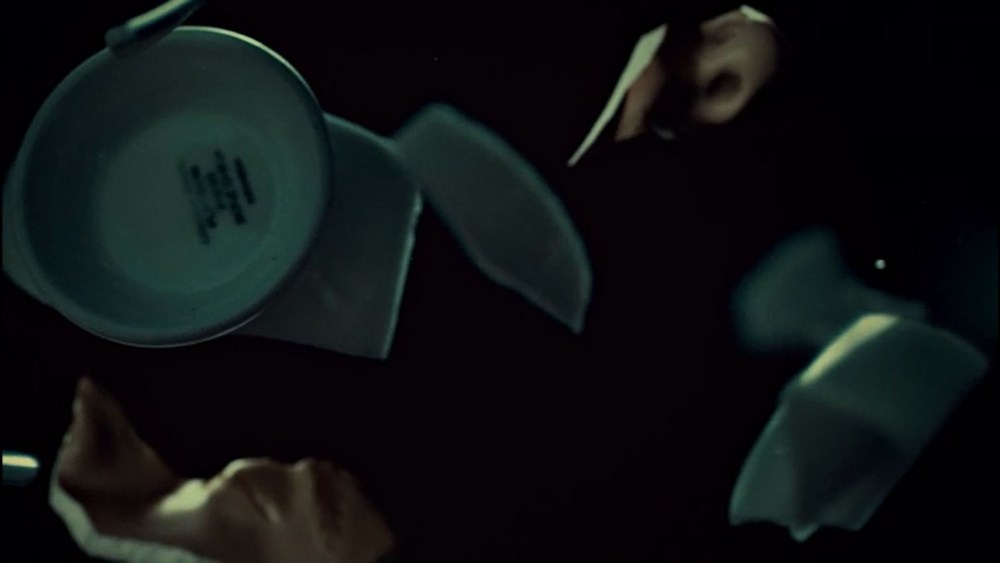
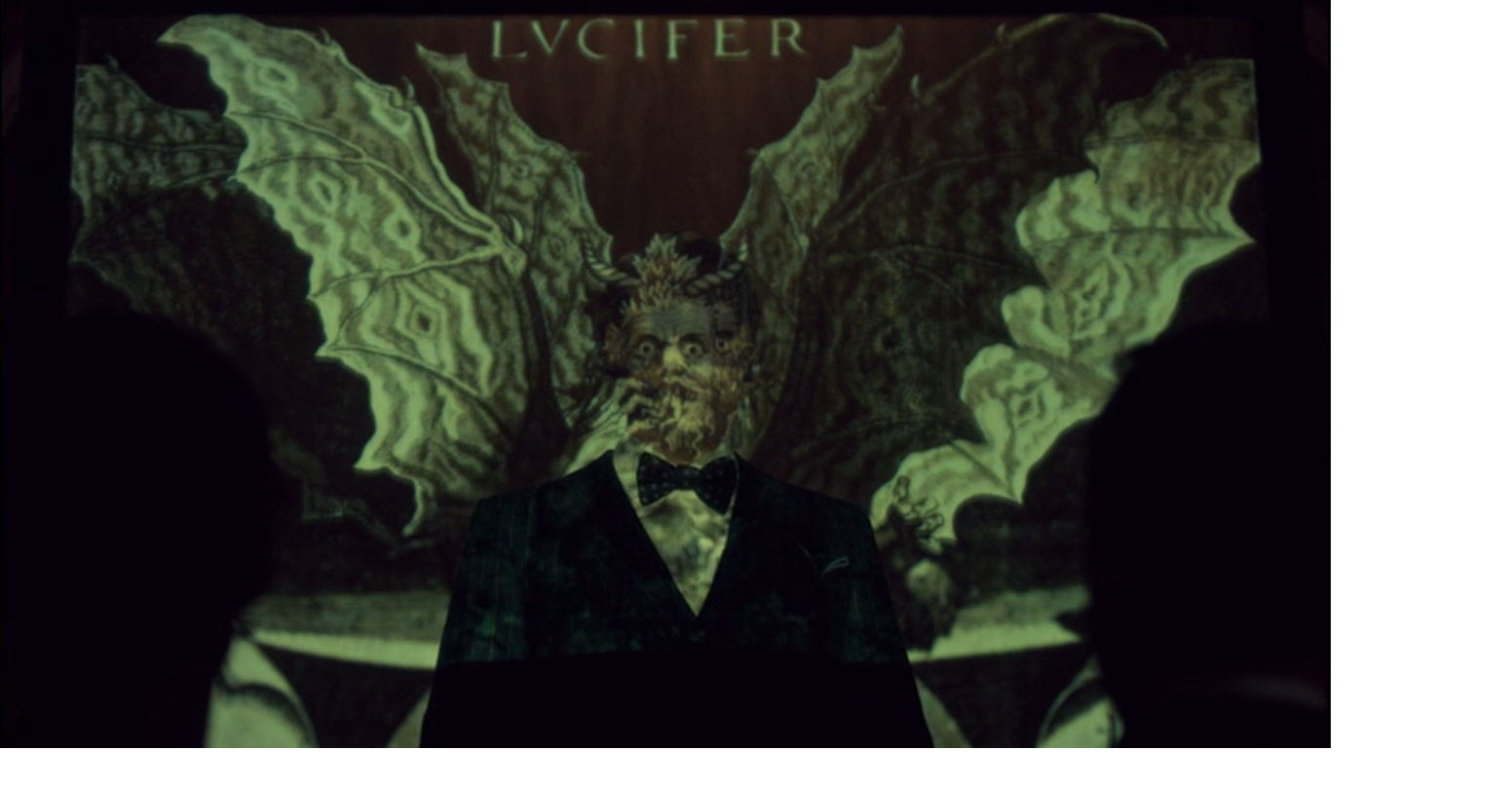 ANTIPASTO: And so we move to Italian cuisine for seven episodes. Antipasto is the starter course, distinct from the amuse bouche or sakizuki in that it is a heavier dish, often with cold meats, as befits this unusually dense premiere.
ANTIPASTO: And so we move to Italian cuisine for seven episodes. Antipasto is the starter course, distinct from the amuse bouche or sakizuki in that it is a heavier dish, often with cold meats, as befits this unusually dense premiere.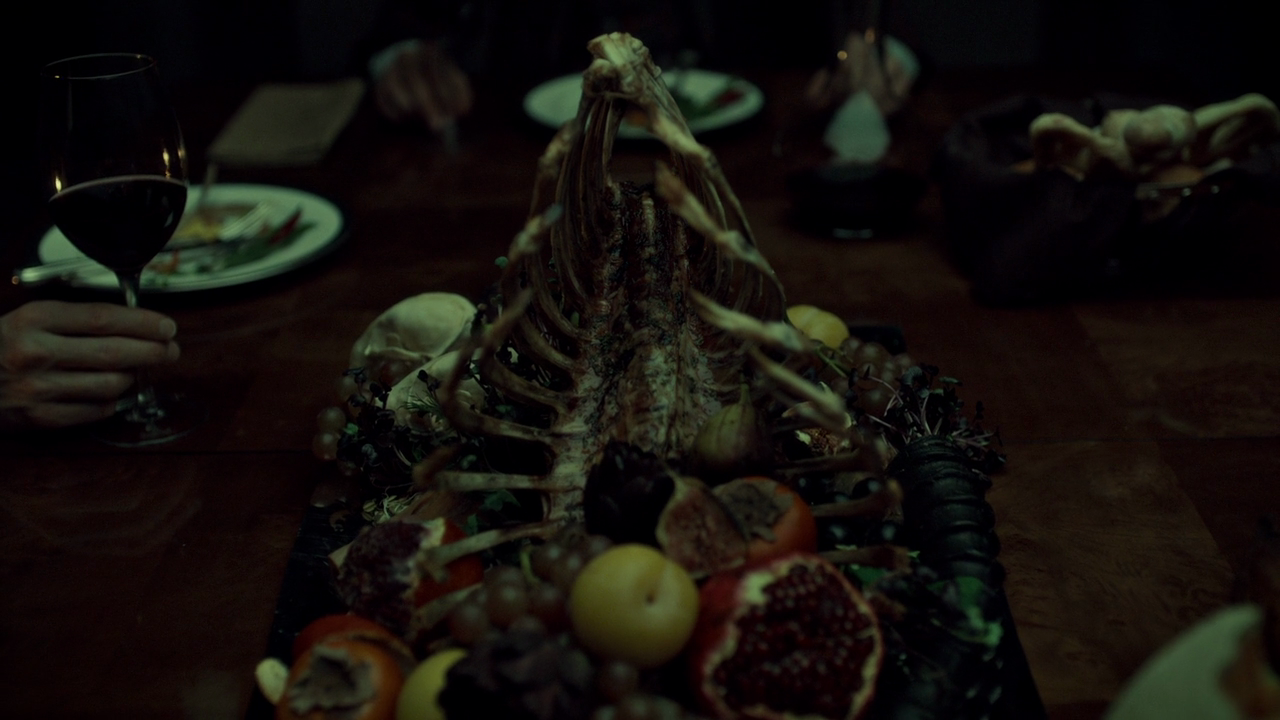 MIZUMONO: Dessert. Unlike savoureux, mizumono is in fact sweet, suggesting that the show has allied itself with Hannibal’s perspective as opposed to Will’s.
MIZUMONO: Dessert. Unlike savoureux, mizumono is in fact sweet, suggesting that the show has allied itself with Hannibal’s perspective as opposed to Will’s.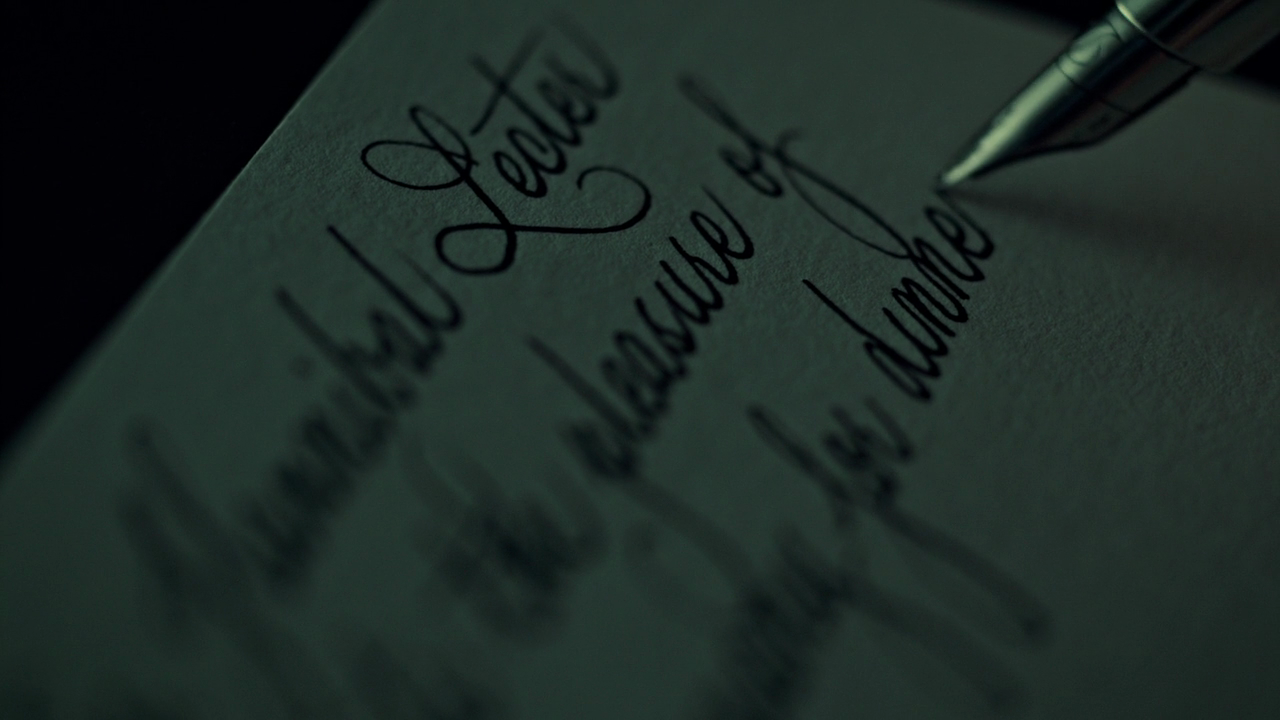
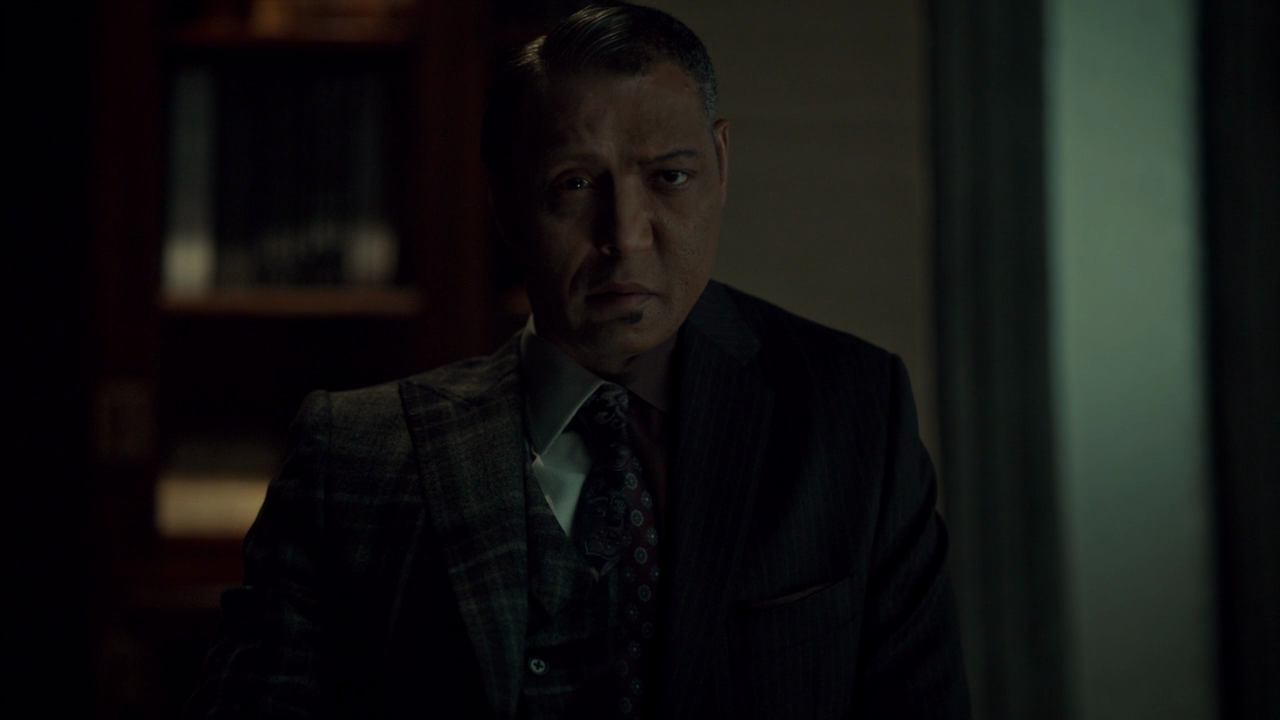
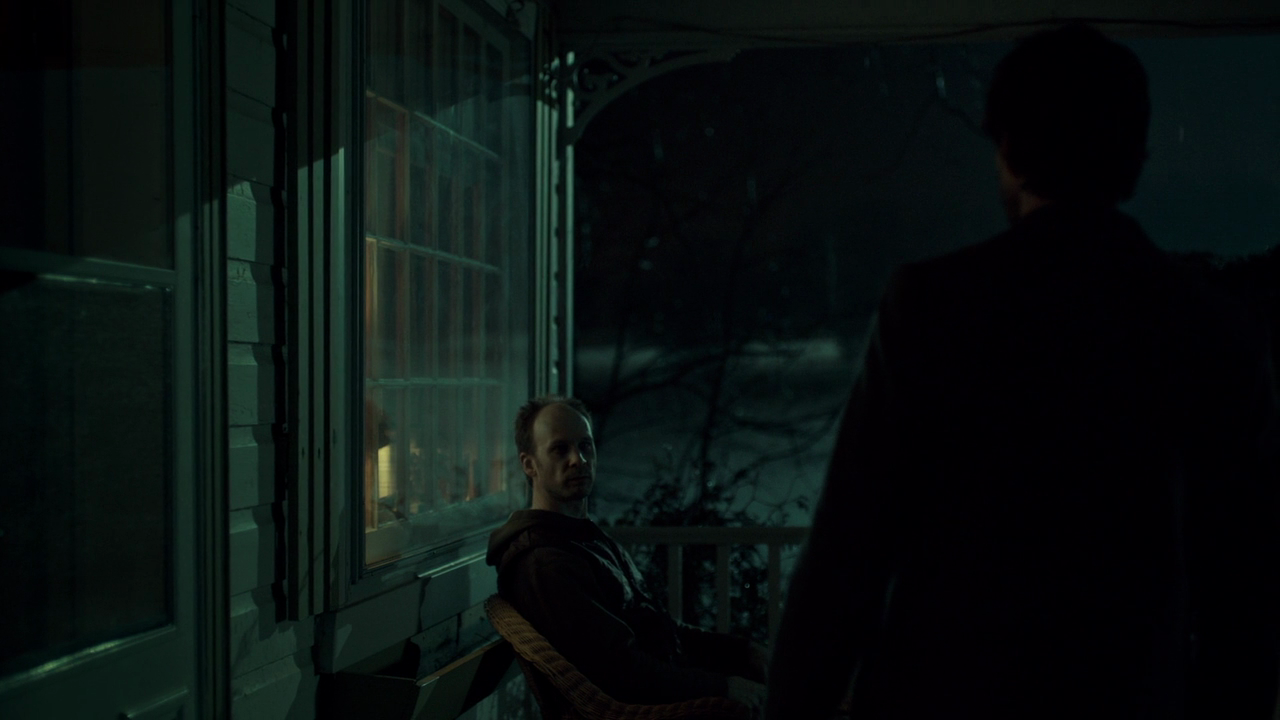
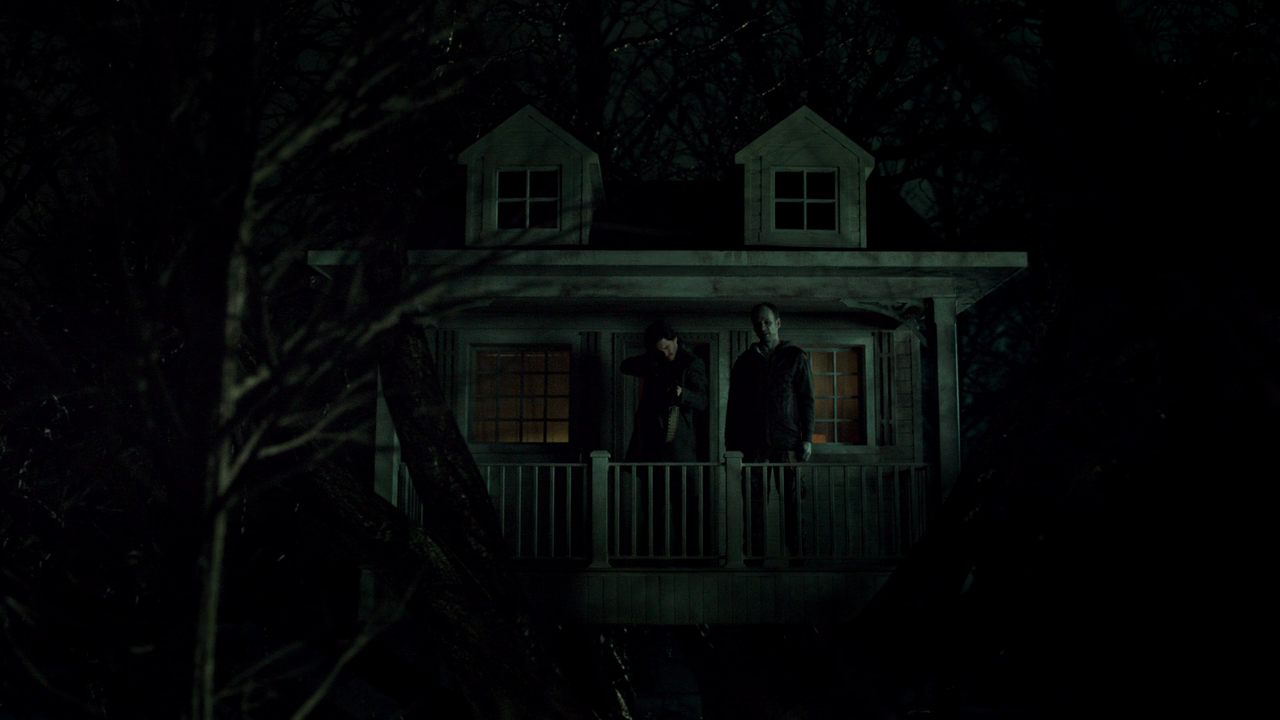
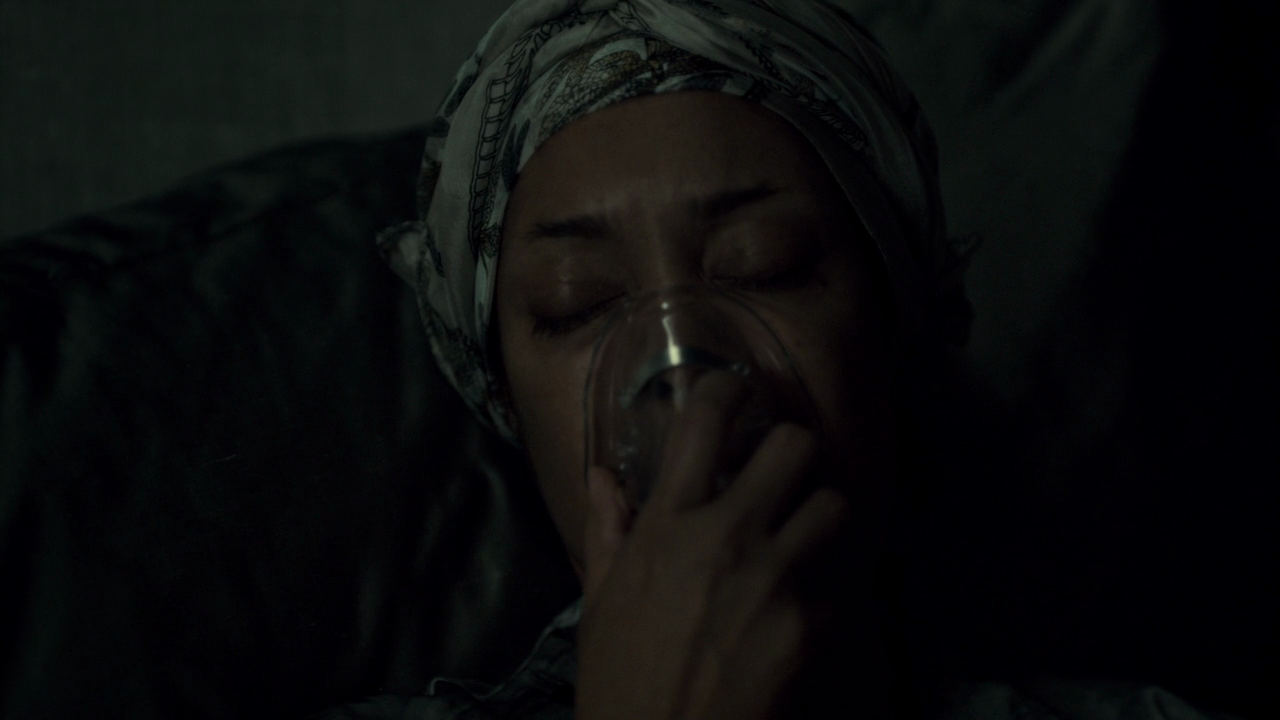
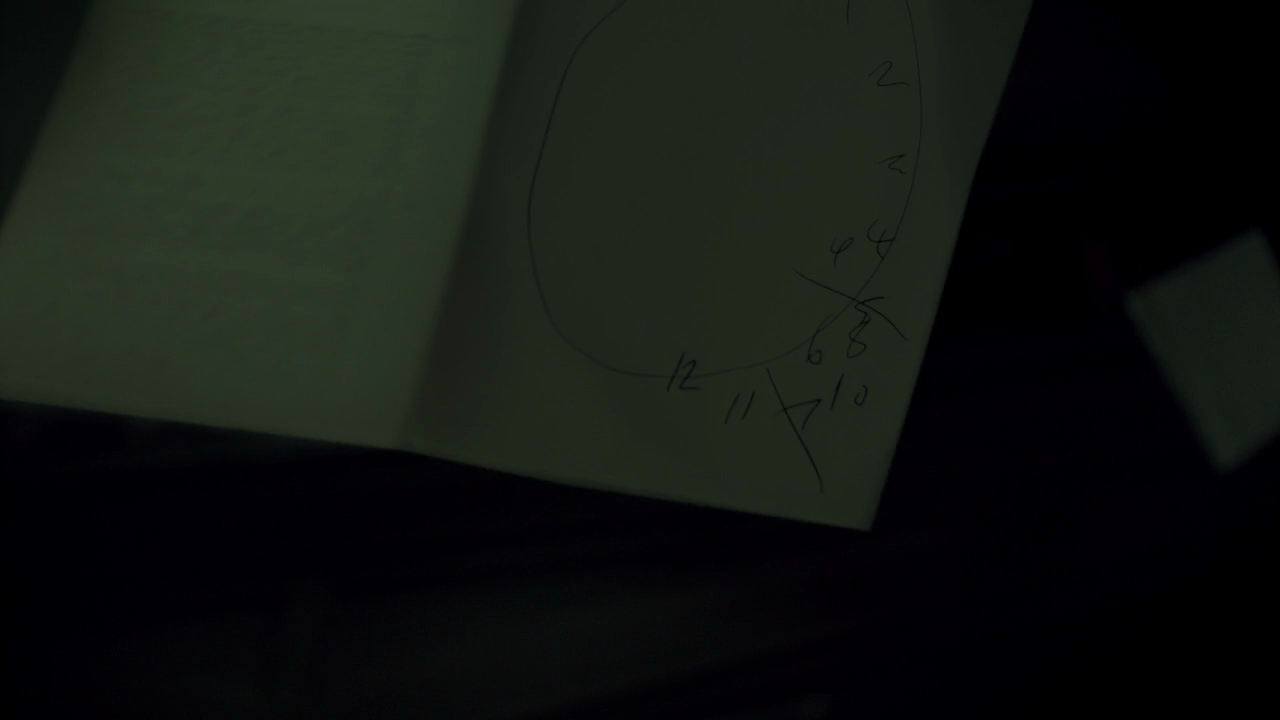
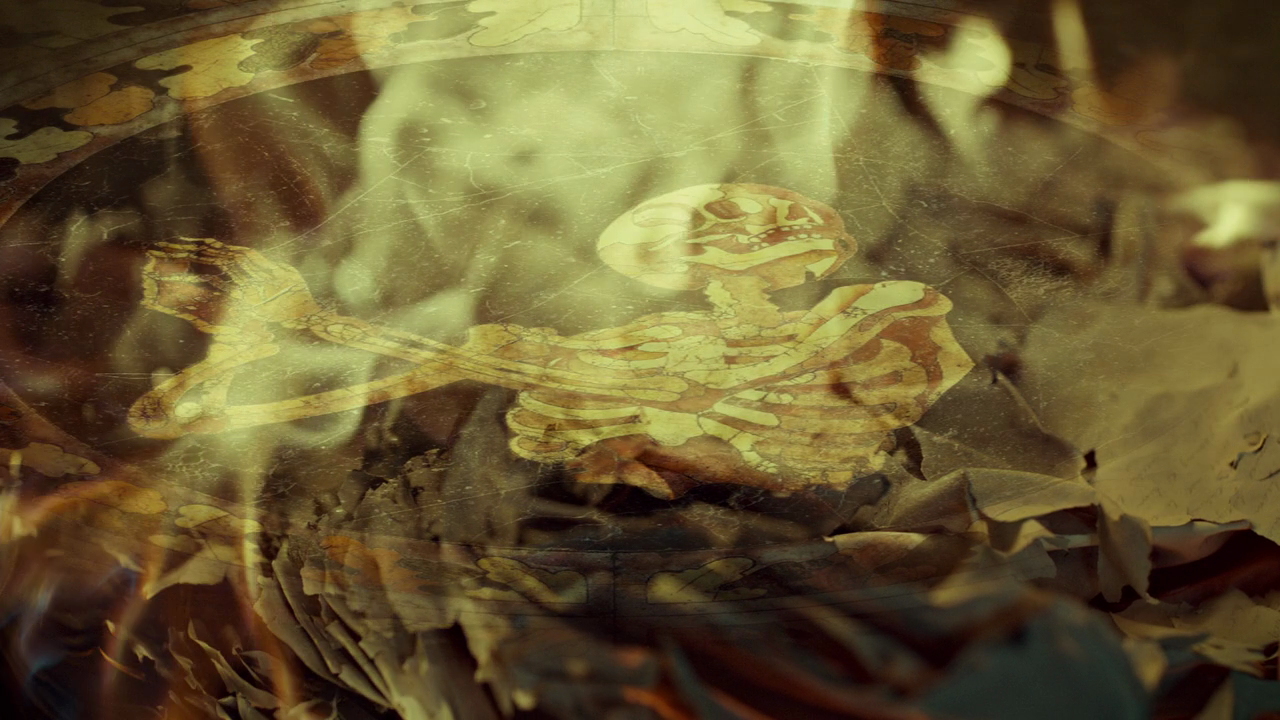
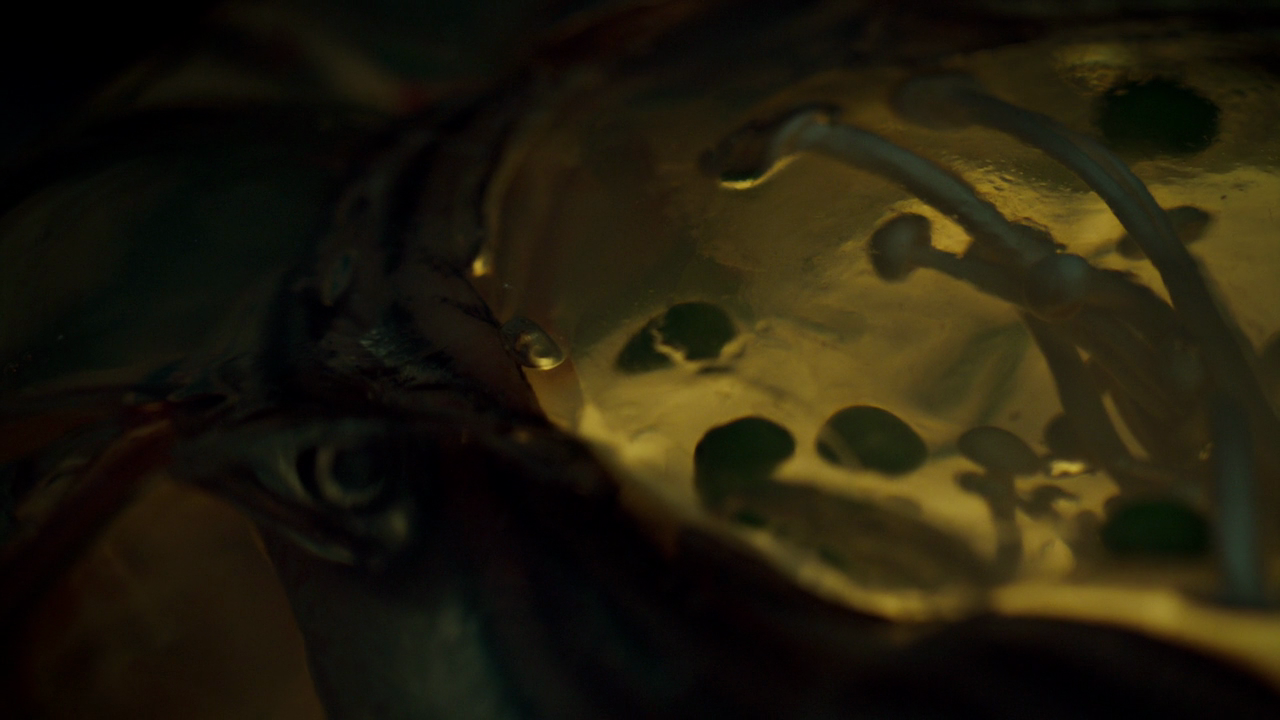 TOME-WAN: A miso or vegetable soup with rice. This signifies nothing more than the approaching end of the meal.
TOME-WAN: A miso or vegetable soup with rice. This signifies nothing more than the approaching end of the meal.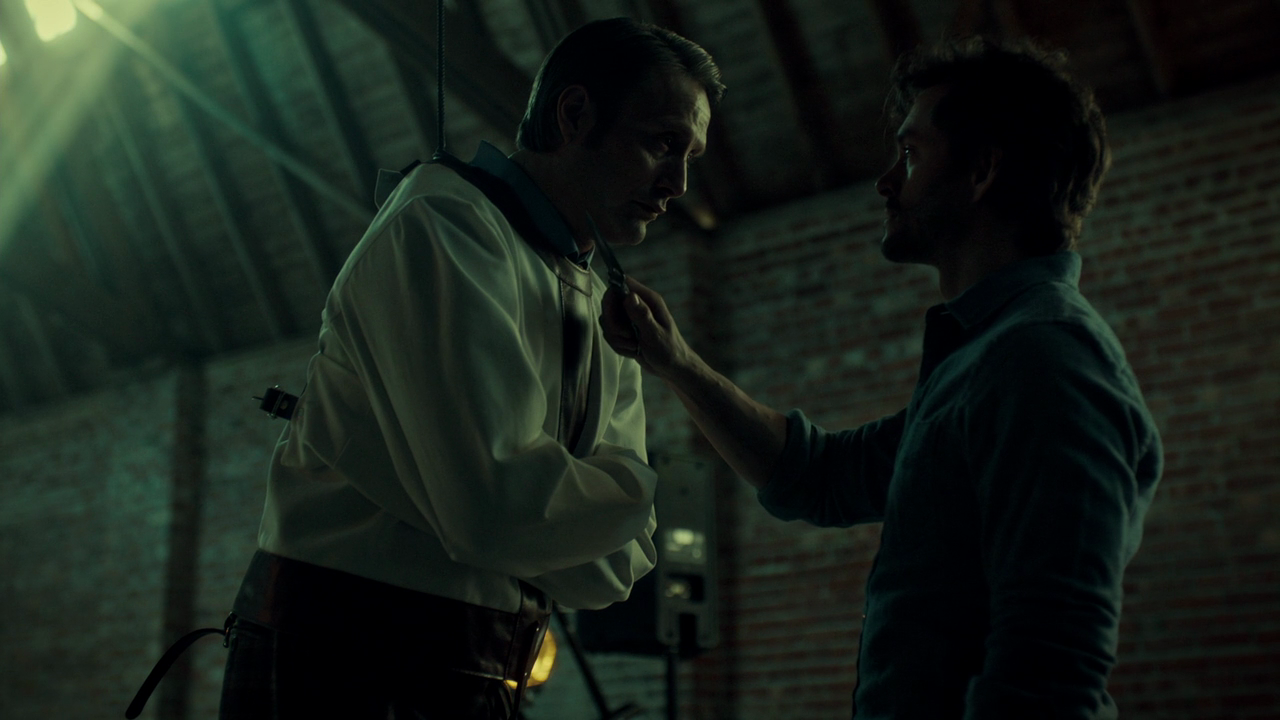
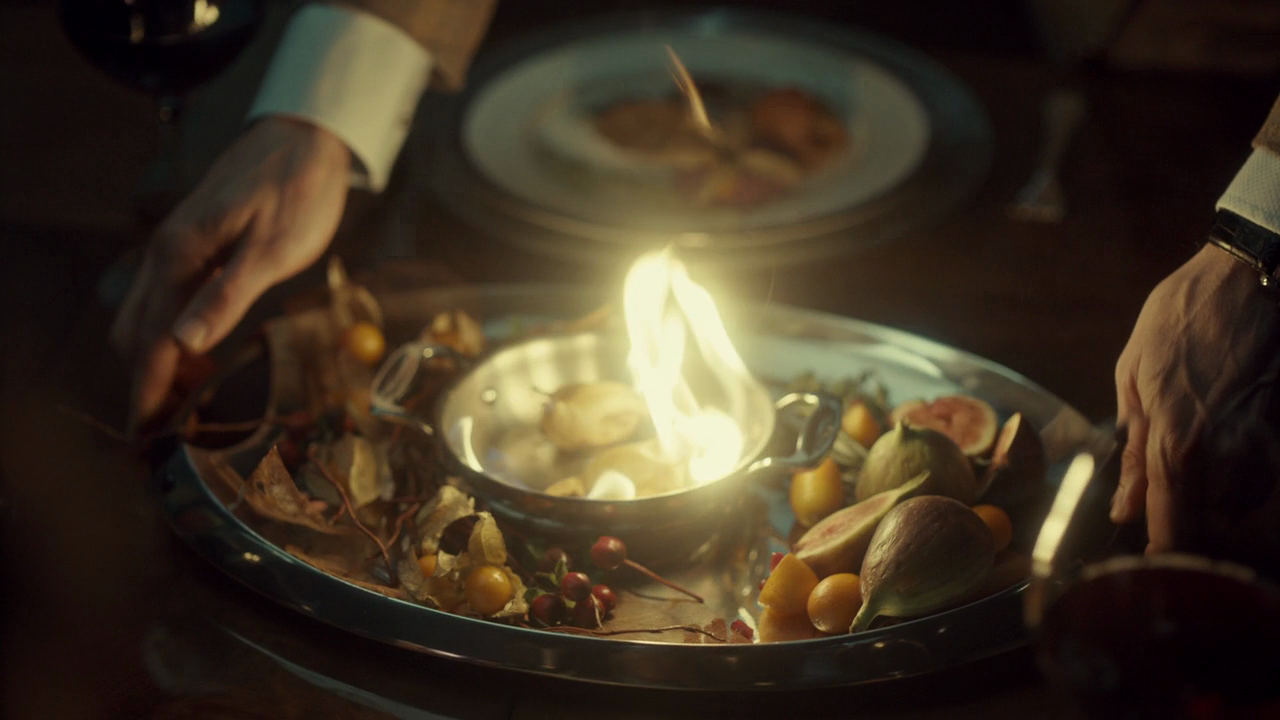 KŌ NO MONO: An assortment of pickled vegetables. Janice Poon suggests that this signals the approaching denouement, and also makes a nice metaphor about the vegetables sharpening the senses, which is what Alanna needs. The reality is that the second season is not so much going off the rails as plummeting down the gorge, watching mournfully as the rails disappear into the sky.
KŌ NO MONO: An assortment of pickled vegetables. Janice Poon suggests that this signals the approaching denouement, and also makes a nice metaphor about the vegetables sharpening the senses, which is what Alanna needs. The reality is that the second season is not so much going off the rails as plummeting down the gorge, watching mournfully as the rails disappear into the sky.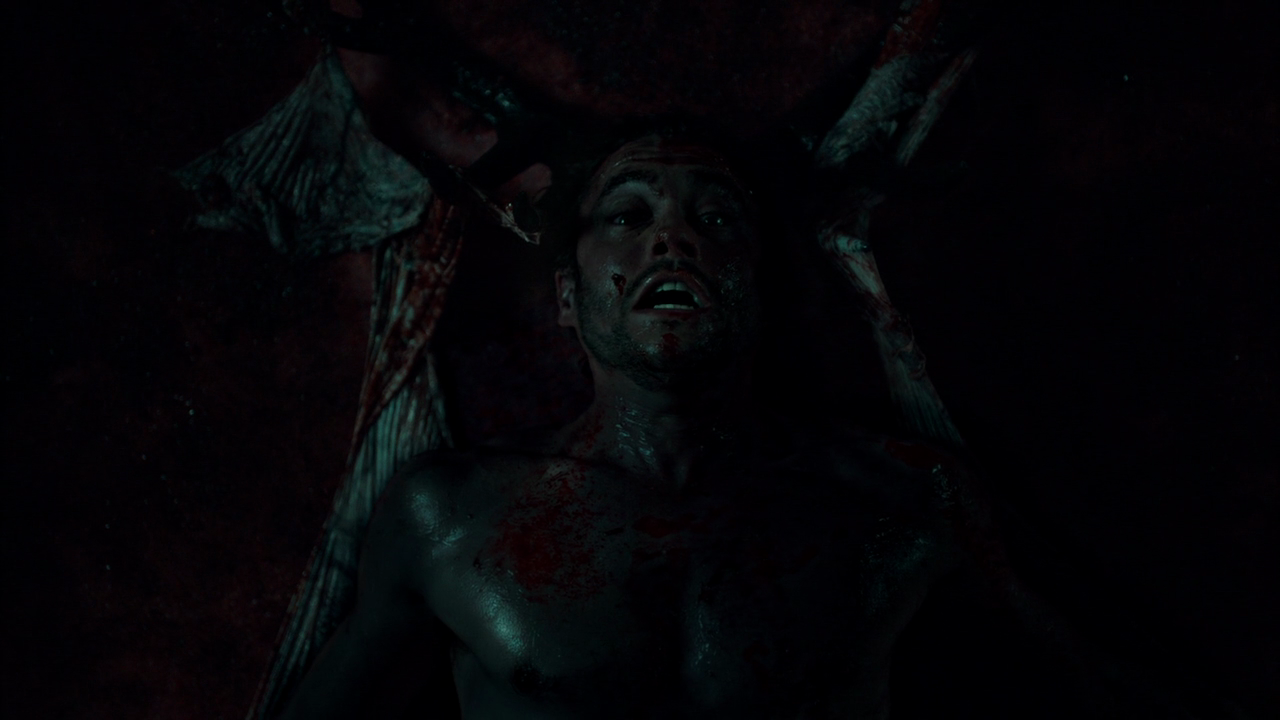
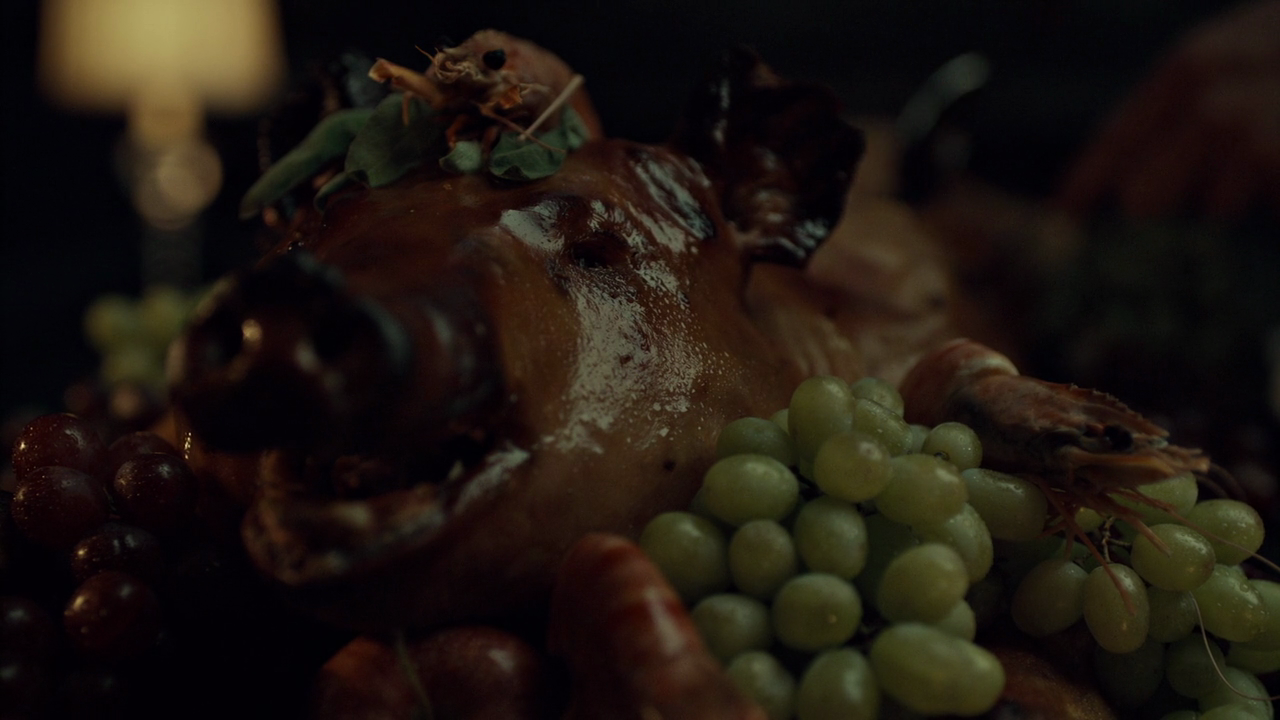 NAKA-CHOKO: A citrusy soup, used as a palate cleanser. Hannibal does suggest that a meat has citrus notes, but that’s a stretch. Not even Janice Poon tries to explain this one.
NAKA-CHOKO: A citrusy soup, used as a palate cleanser. Hannibal does suggest that a meat has citrus notes, but that’s a stretch. Not even Janice Poon tries to explain this one.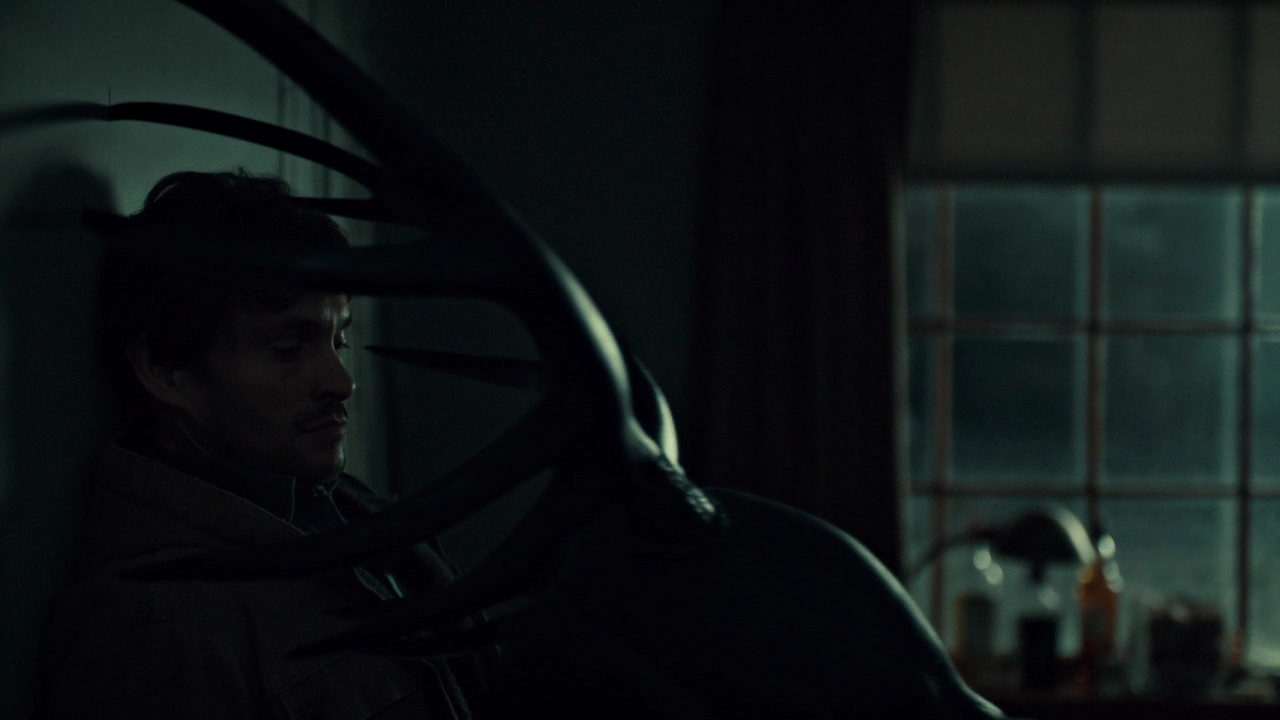
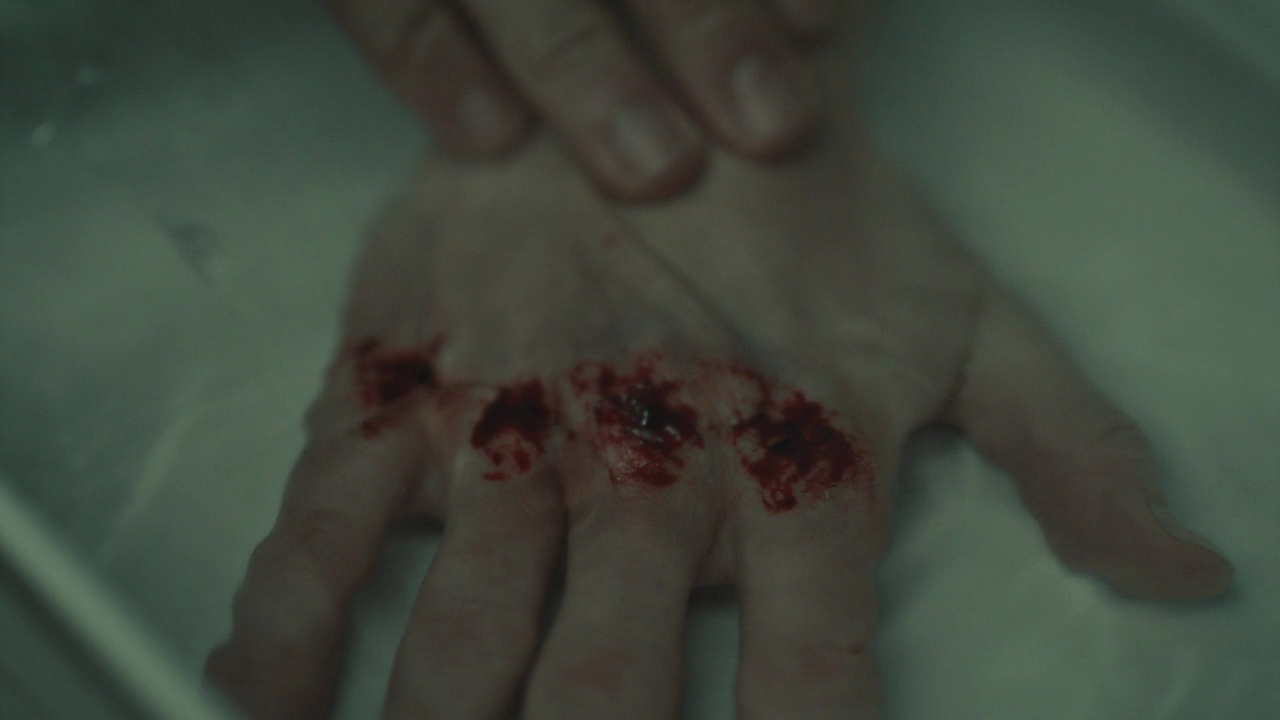
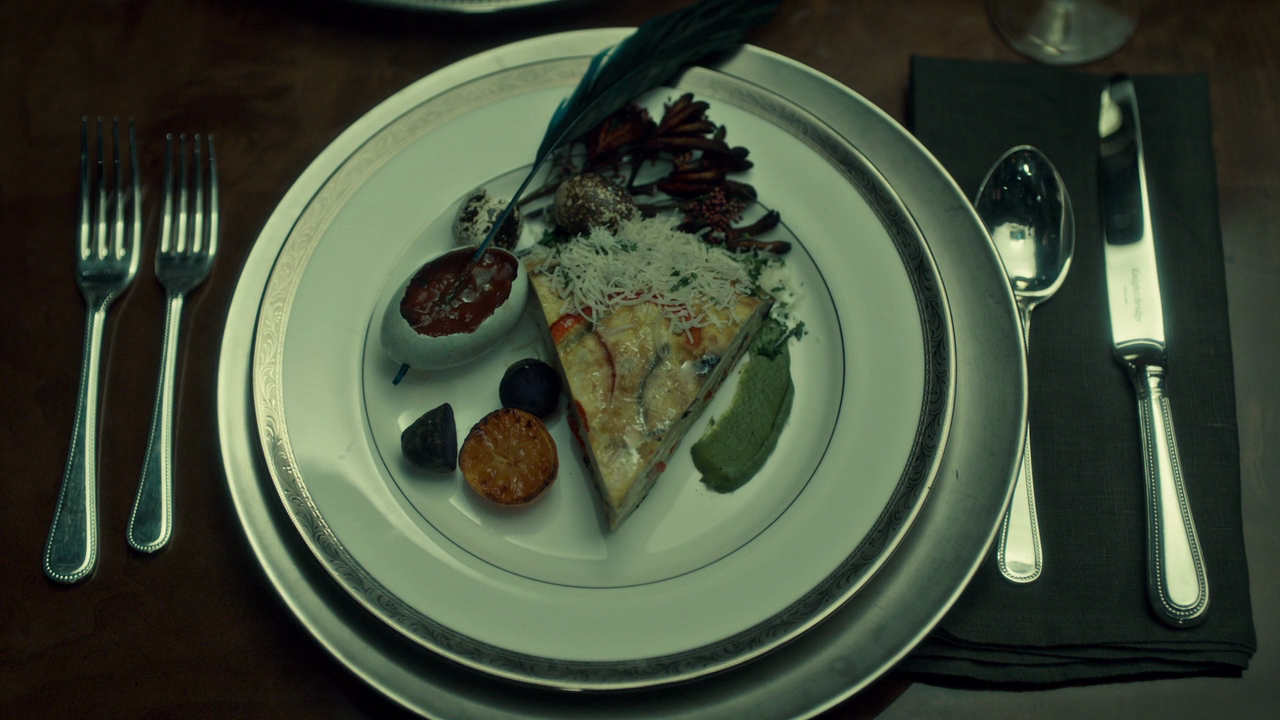 SHIIZAKANA: A hot pot dish, meat-based and the nominal main course. I’m going to go ahead and just call it “no relation” to the contents of the episode, because reading this as somehow forming a culminating centerpiece of the season is just too ridiculous.
SHIIZAKANA: A hot pot dish, meat-based and the nominal main course. I’m going to go ahead and just call it “no relation” to the contents of the episode, because reading this as somehow forming a culminating centerpiece of the season is just too ridiculous.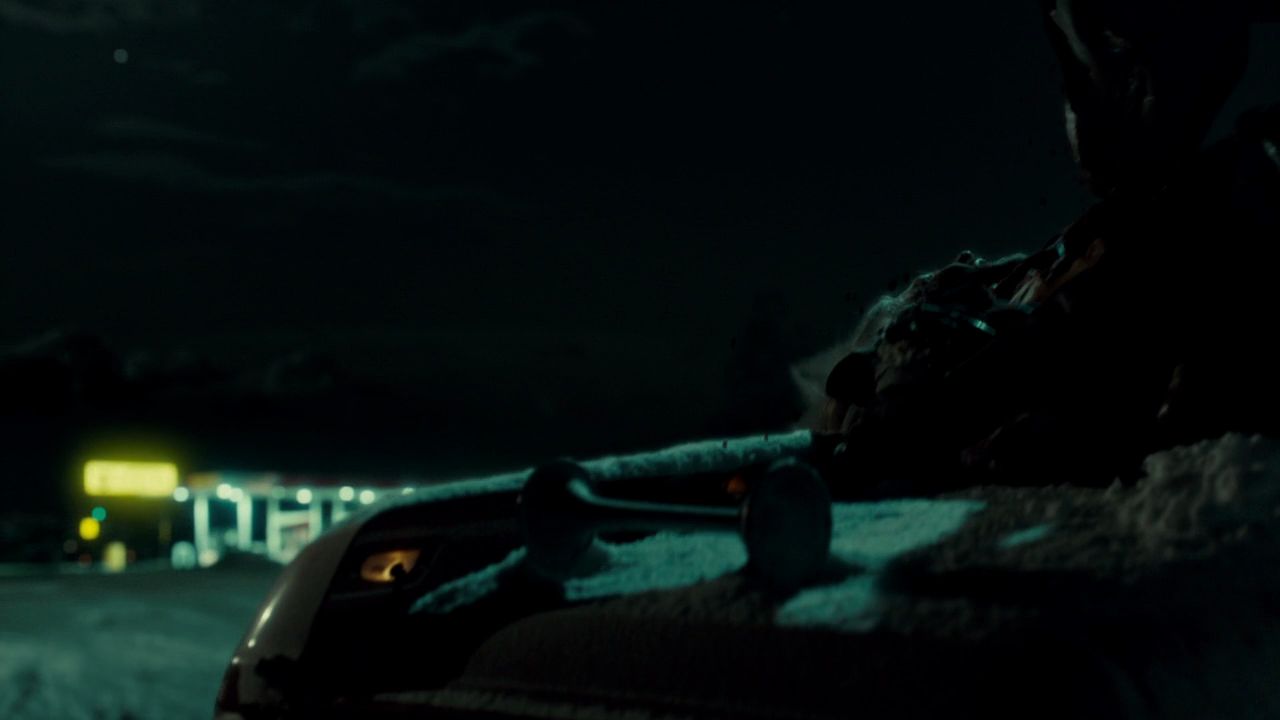
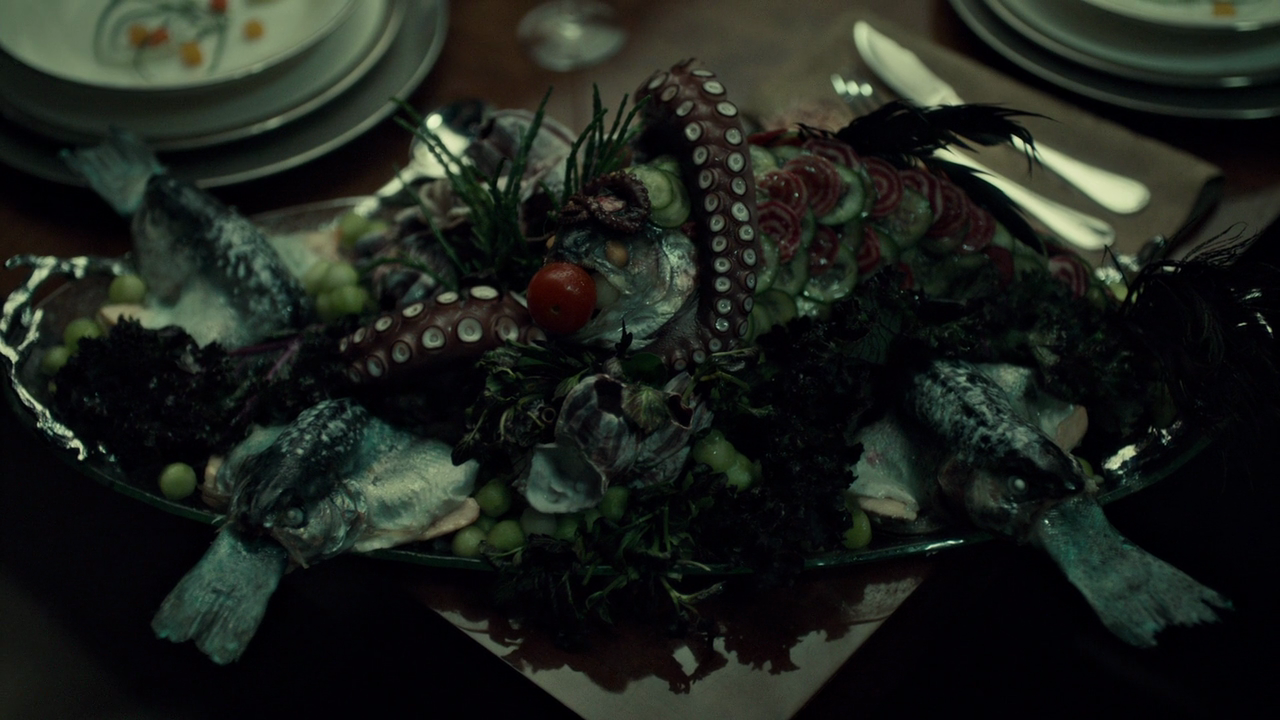 SU-ZUKANA: A palate cleanser, typically involving vinegar. A better title for last week, I suspect, but still fitting for this, which essentially starts off with all new concerns.
SU-ZUKANA: A palate cleanser, typically involving vinegar. A better title for last week, I suspect, but still fitting for this, which essentially starts off with all new concerns. YAKIMONO: A course of flame-grilled meat. There are a number of episodes this would be a sensible title for, none of which are this one.
YAKIMONO: A course of flame-grilled meat. There are a number of episodes this would be a sensible title for, none of which are this one.